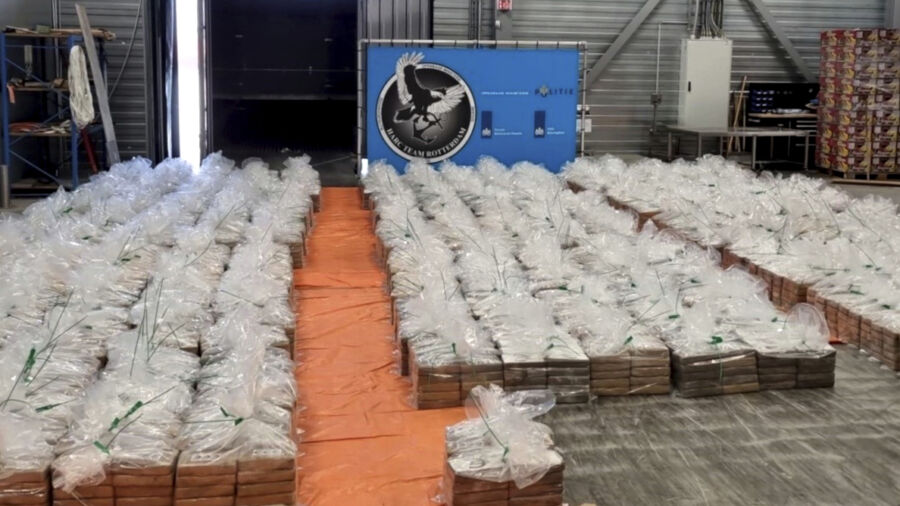Netherlands customs agents in the port of Rotterdam recently seized some 17,778 pounds of cocaine in a single shipment, in what Dutch authorities have said was the largest-ever haul in the nation’s history.
Trained sniffer dogs detected the drugs, which were hidden in 12 pallets of bananas. A subsequent search revealed 8,064 one-kilo packages of cocaine, with an estimated street value of 600 million euro ($657 million).
The customs agents made the catch on July 13, but didn’t immediately release the information to the public in order to avoid interfering with their investigation of the shipment.
The drugs were shipped from Ecuador via Panama to Rotterdam, the city’s public prosecutor’s office said in a news statement.
Rotterdam is the largest port in Europe. In recent years, the port has seen a great increase in mass-shipments of cocaine—and in the intimidation of port workers by organized crime organizations.
“Serious violence related to the cocaine market seems to be increasing,” according to the European Monitoring Centre for Drugs and Drug Addiction (EMCDDA).
Worse still, the organization said that “there are indications that corruption related to the cocaine market is present in other sectors of European society.”
A report from the EMCDDA indicates that record quantities of cocaine have been seized in European ports every year since 2017.
Ports in the Netherlands, Belgium, and Spain account for more than 70 percent of cocaine seized in Europe. However, increasing amounts of cocaine seized elsewhere on the continent suggest that the drug-trafficking gangs are extending their activities to ports where drug enforcement is less pervasive.
In February, the ports of Rotterdam and Antwerp announced they were teaming up with five multinational shipping companies to take measures against drug traffickers.
The joint effort will involve so-called smart containers that trigger an alarm when tampered with, enhanced employee screening, and “the exchange of information and the development of more international security standards to combat crime and global drug smuggling.”
“The record seizures in the harbors of Rotterdam and Antwerp are illustrative of the size of the drug smuggling problem in both countries,” Netherlands Benefits and Customs State Secretary Aukje De Vries said in a statement. She said the two countries are working closely together to “obtain and study radiographic images from Latin America.”
Last year, the Belgian Minister of Finance announced a 77-millio-euro ($84-million) investment in technology and manpower to combat the increasing inflow of drugs into Antwerp, Europe’s second-largest port. Port authorities there confiscated a record 110 metric tonnes (121 short tons) of cocaine in 2022.
In 2022, the Dutch government said it would spend more than $30 million to fight drug trafficking. The efforts include close collaboration with customs officers in transit countries, mainly in Latin America.

